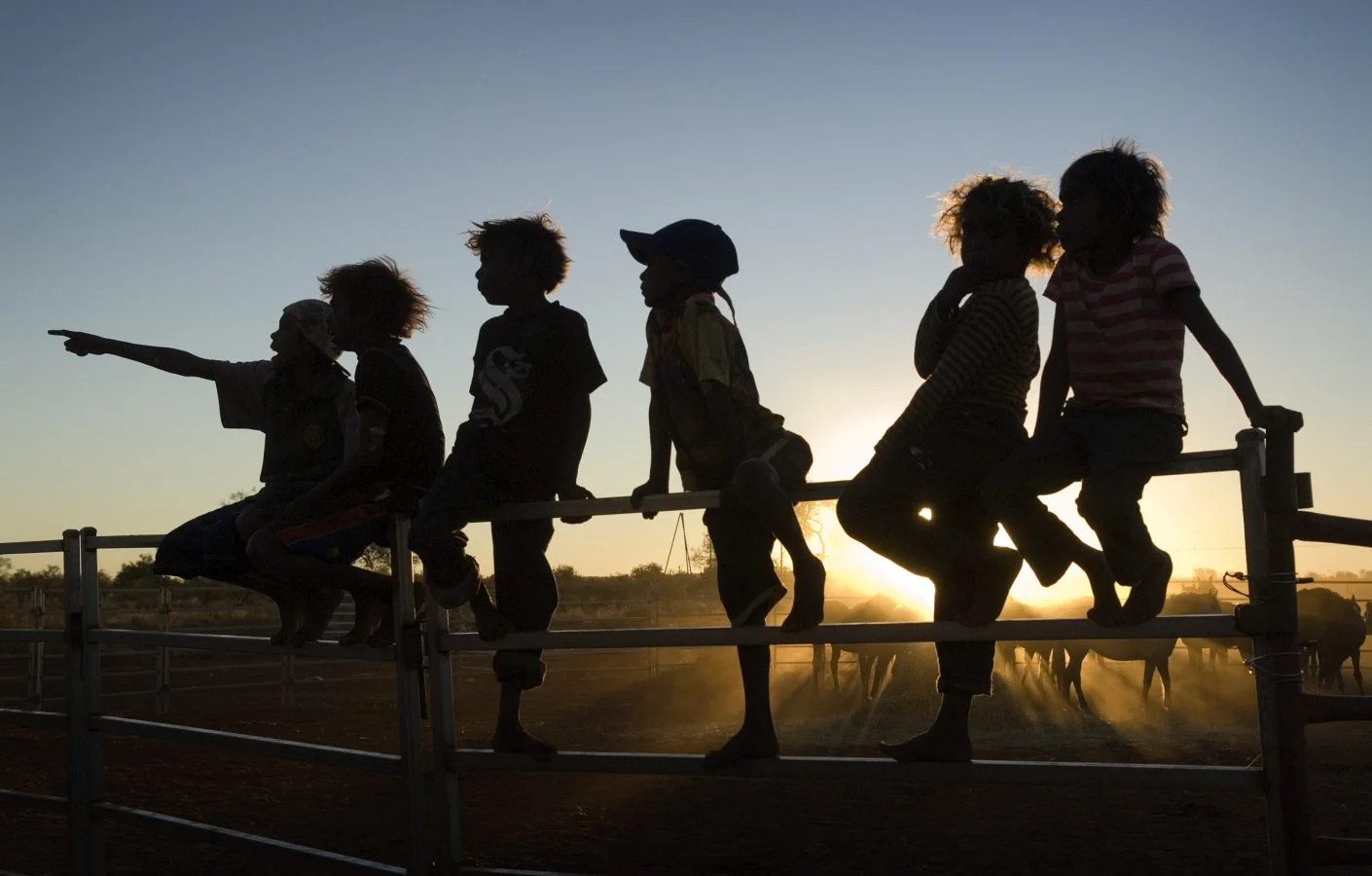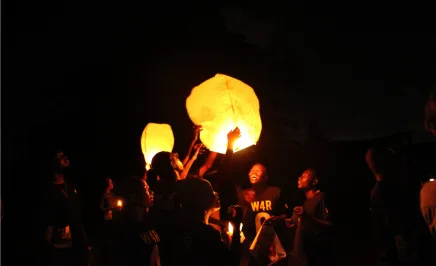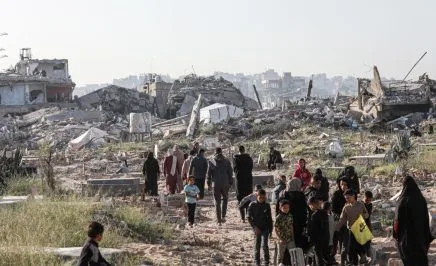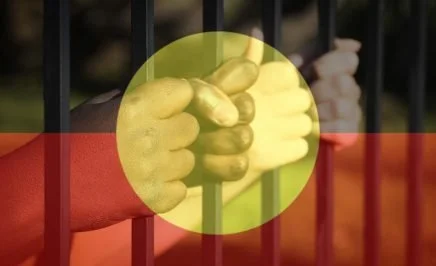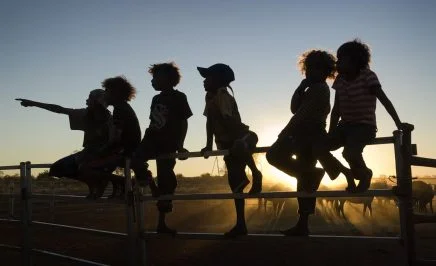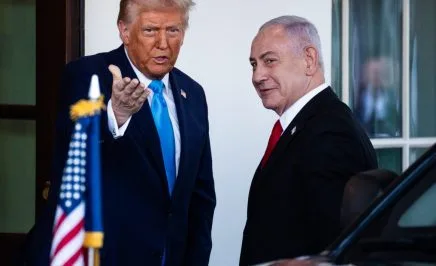Amnesty is honoured to work closely with the oldest continuing culture in the world. We value the relationships we have with Aboriginal and Torres Strait Islander communities across Australia.
To be an effective human rights organisation, we’ll continue working with Aboriginal and Torres Strait Islander peoples in their fight for justice in order to achieve meaningful reconciliation among all Australians. Our Reconciliation Action Plan 2024-2026 is one of the many mechanisms we’ll use to progress reconciliation efforts within our organisation, our movement and across the nation.
“Reconciliation is intrinsic to our organisation as it speaks to the very core of our work championing human rights for everyone. Our futures are bound together and as such we are committed to truth, justice and reconciliation for all Australians”. -Samantha Klintworth, National Director, Amnesty International Australia
Our vision for reconciliation is that Aboriginal and Torres Strait Islander peoples live free from discrimination and they have equal access to justice outcomes as the rest of the Australian community. It’s our vision that race relations amongst all Australians are healed and greatly improved and that Aboriginal and Torres Strait Islander cultures are a shared national identity.
We want to see equality in life outcomes relating to health, education, housing and justice between Aboriginal and Torres Strait Islander peoples and non-Aboriginal and Torres Strait Islander peoples. We are also committed to creating an inclusive, representative, anti-racist and culturally safe movement for Aboriginal and Torres Strait Islander staff, activists and community partners within Amnesty.
Short on time? Find a brief explainer below!
We’ll bring our vision for reconciliation to life by:
- continuing our ‘Community is Everything’ campaign alongside Aboriginal and Torres Strait Islander communities to address some of the challenges faced by those communities. The ‘Community is Everything’ is an umbrella campaign that includes the Raise the age campaign, campaign to ban police cages to transport children in the Northern Territory, Youth justice reform campaign in Tasmania, Indigenous youth justice campaign, and campaign to end children in police lockups in Queensland,
- educating Australians on the ongoing impacts of historical wrongs, injustices and inequalities through the launch of our public human rights education program so these injustices do not occur again,
- continuing our Deaths in Custody campaign,
- educating our staff, volunteers, activists and supporters about Aboriginal and Torres Strait Islander people’s diverse cultures, lands, history and more to increase their cultural proficiency and to improve cultural safety for First Nations staff,
- building strong, sustainable relationships with Aboriginal and Torres Strait Islander communities, leaders, organisations and councils. This RAP, our Engagement Strategy for Aboriginal and Torres Strait Islander people communities and organisations and People Powered Strategy will guide us in prioritising partnerships, collaborations and relationships with the communities,
- demonstrating respect for Aboriginal and Torres Strait Islander people and communities by embedding cultural protocols as part of the way our organisation functions and celebrating and supporting key dates, events and campaigns,
- increasing employment and progression opportunities within our organisation for Aboriginal and Torres Strait Islander people,
- broadening Aboriginal and Torres Strait Islander people’s representation within our movement and governance structures including our membership, board, activism leadership committees, volunteer and activist base, and
- creating a culturally safe movement for Aboriginal and Torres Strait Islander people and communities.
